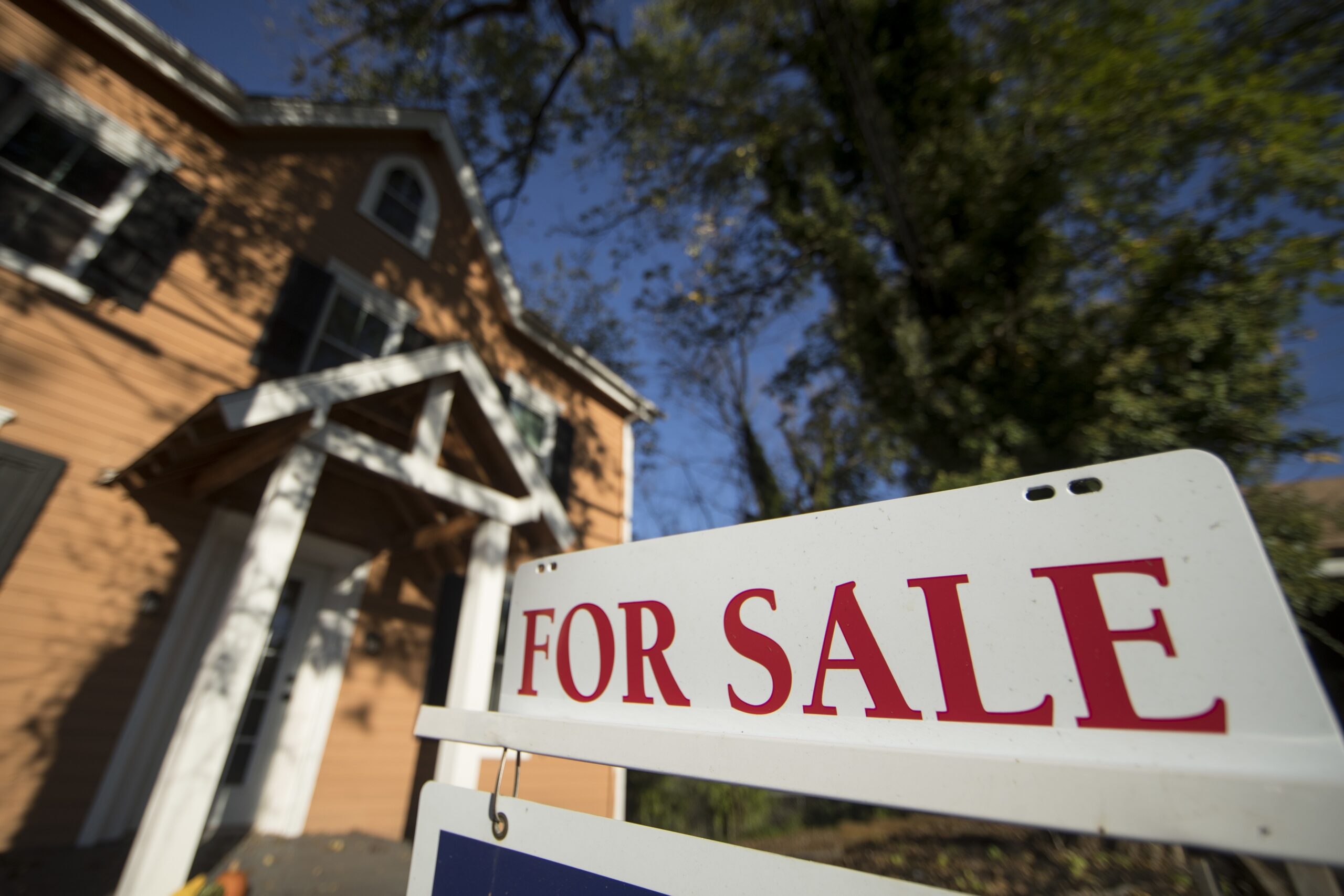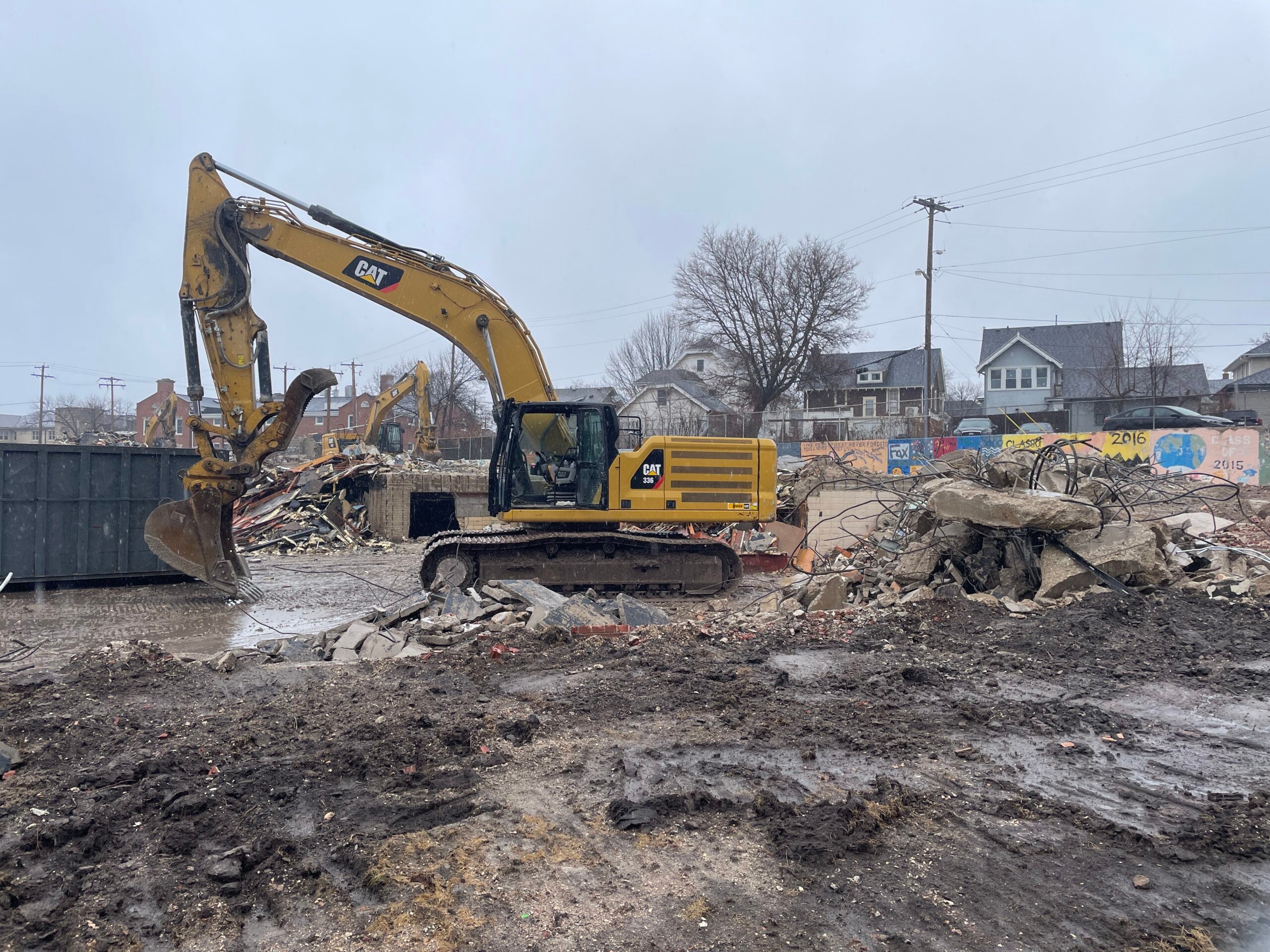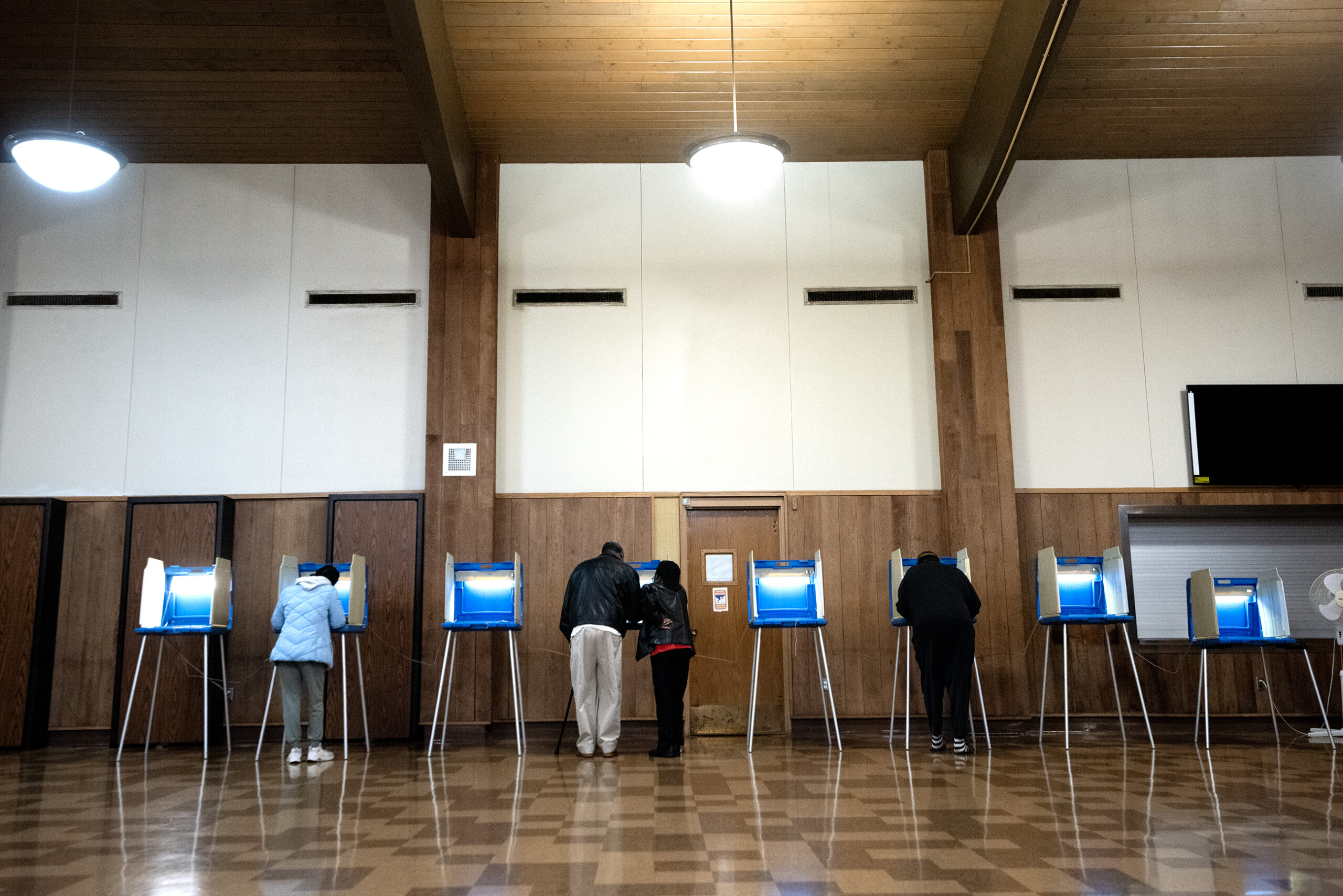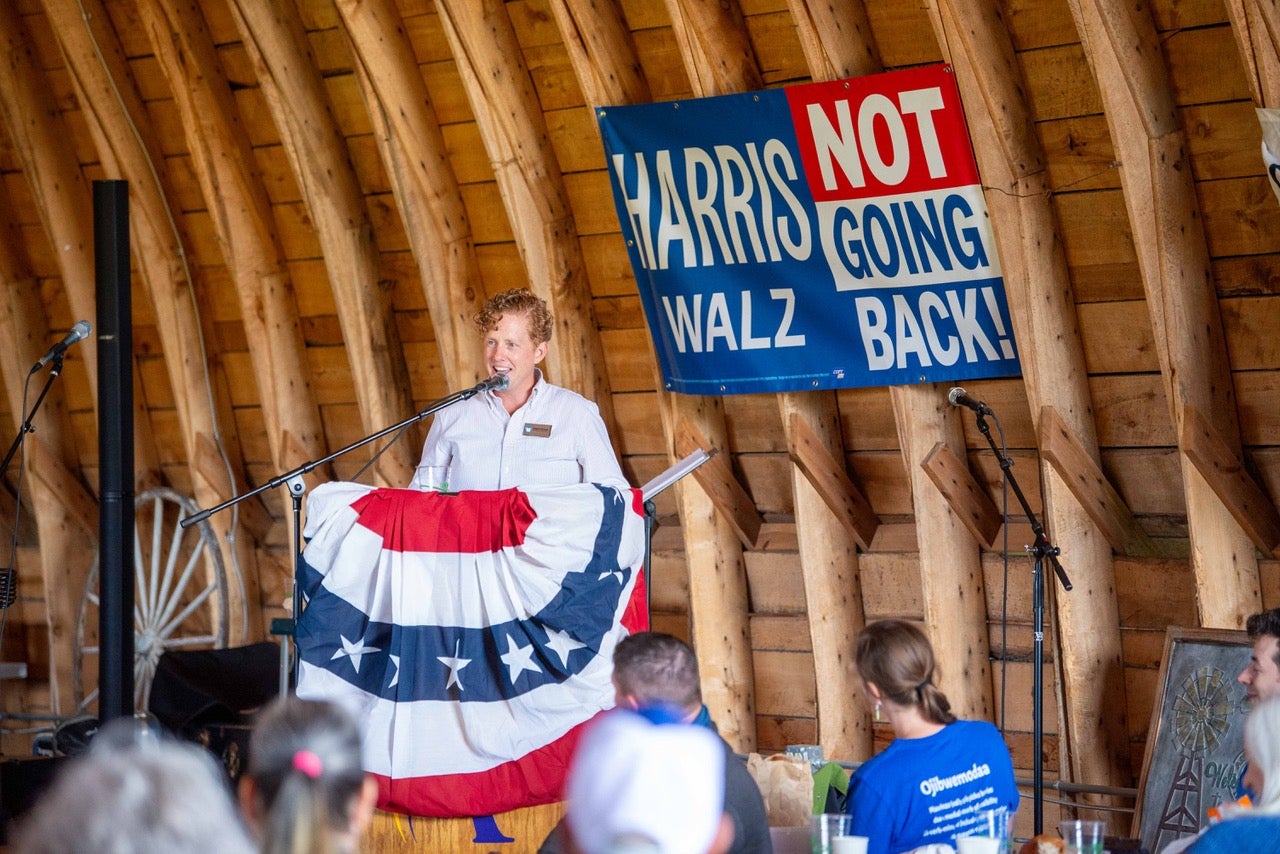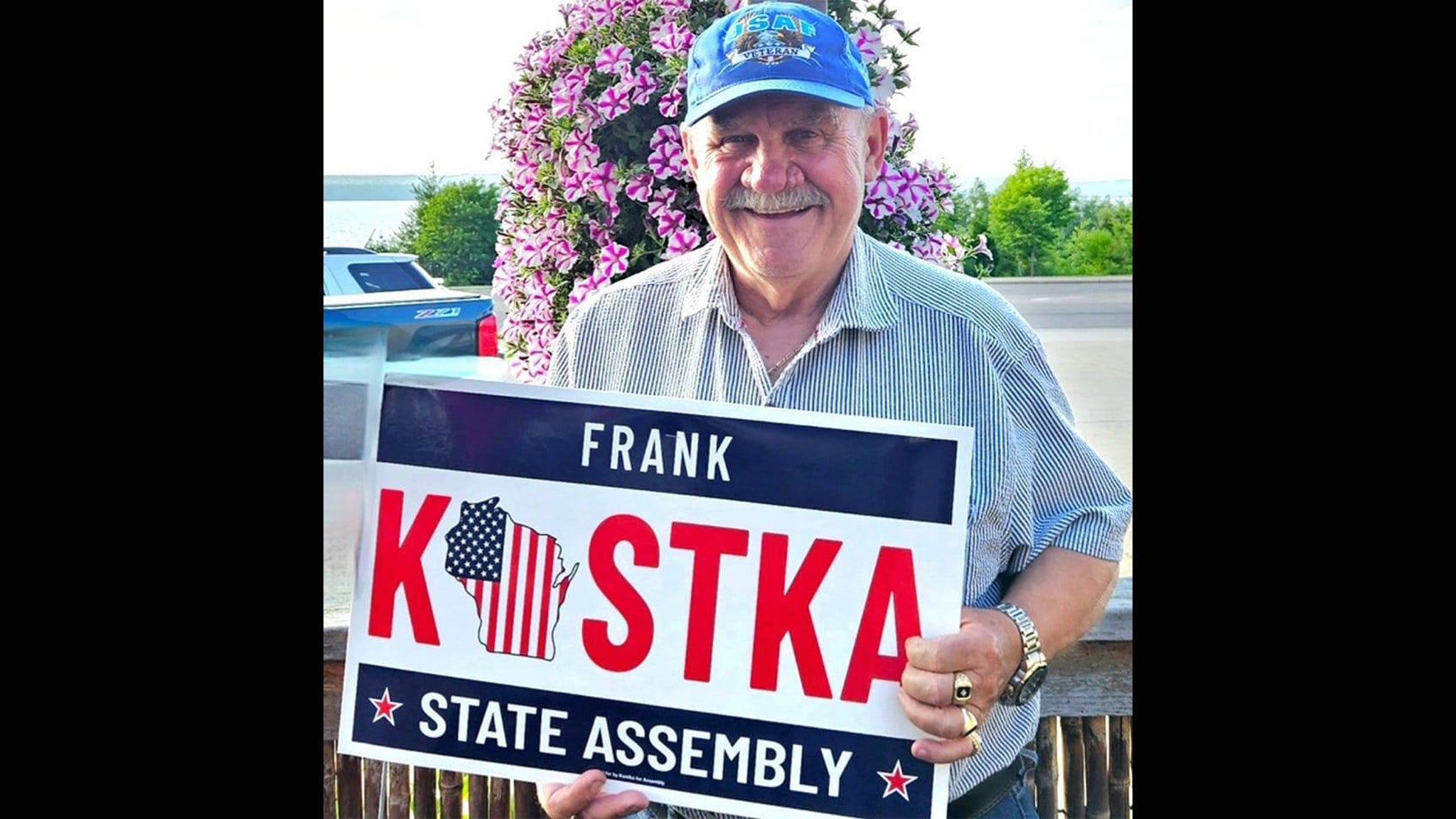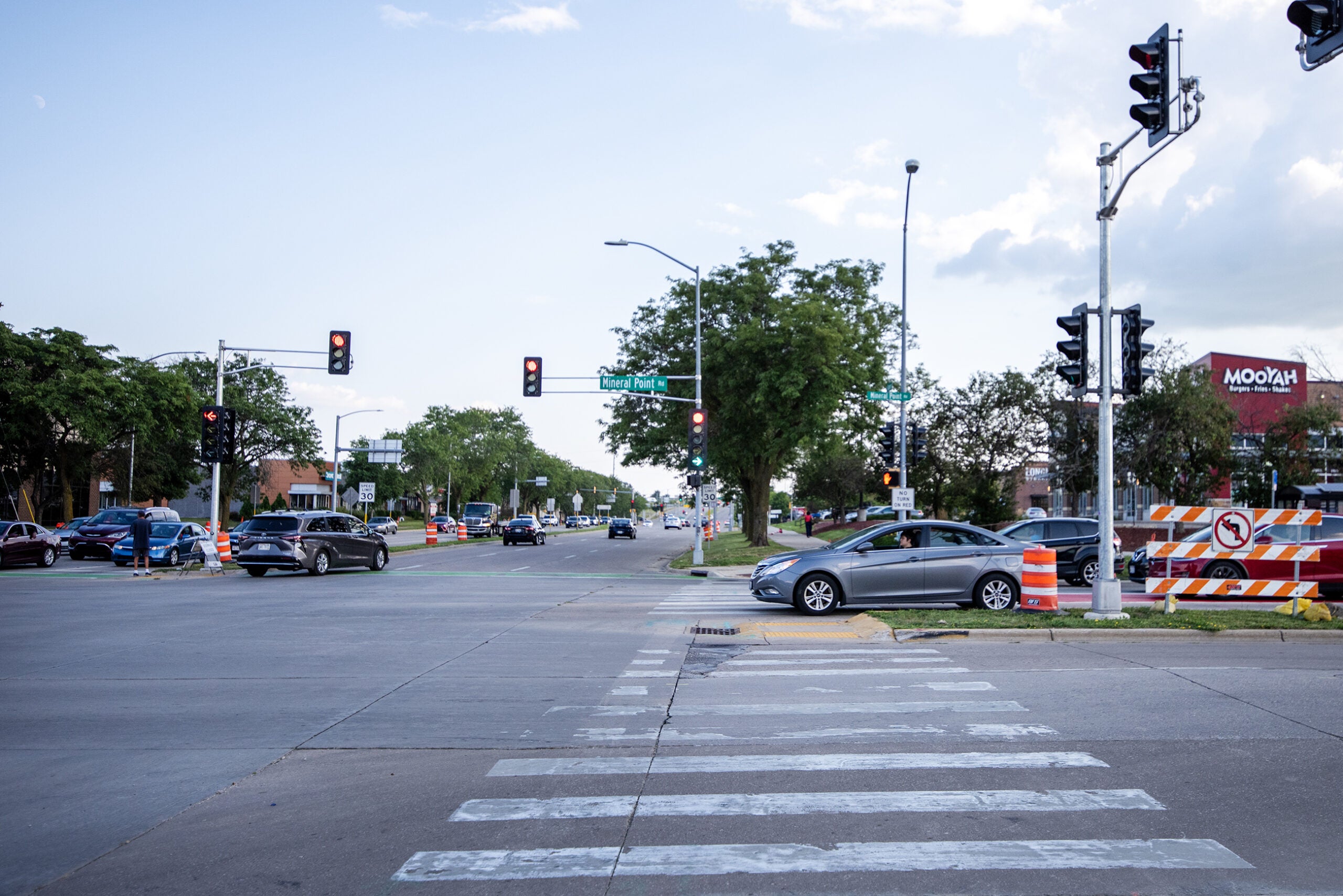Prospective homebuyers in Wisconsin have seen home prices grow faster than income in recent years, making it daunting to buy a home amid a shortage of housing.
While incomes among renters have kept pace with rising rental prices, a greater share of renters are spending more on housing than what’s considered affordable.
This election year, WPR is asking people across the state what issues they care about as they head to the polls. Affordable housing was one of the issues identified as a top concern for voters WPR spoke with in Superior.
Washburn native Ethan Cadotte, a Bad River tribal member and student at the University of Wisconsin-Superior, said he’s concerned about the state of rental prices once he moves out of the dorms.
“My main concern is that, on average, rent typically finds itself to be anywhere from like $1,000 to $2,000, as far as I have seen,” Cadotte said.
Stay informed on the latest news
Sign up for WPR’s email newsletter.
Superior resident Monica Frikart wanted to know how candidates will help people afford housing.
“Most of us are working two jobs, sometimes three, just to afford housing,” Frikart said.
Housing demand has driven costs up
In March, a Wisconsin Policy Forum report found the median sales price of homes grew by more than half, while median household income grew by only 19.7 percent from 2017 to 2022. At the same time, the share of renters paying more than 30 percent of their income on housing grew to 45.4 percent in 2022.
Researchers cited the slow pace of housing development amid growing demand for homes. While housing permits grew early in the COVID-19 pandemic, they dropped in 2022 due to high mortgage rates and high building costs.
A 2022 report from the research arm of the Wisconsin Counties Association found the state needs to build up to 227,000 housing units by 2030 to keep up with demand.
Gov. Tony Evers and lawmakers provided $525 million under the current two-year state budget to expand access to affordable housing through creation of revolving loan funds and regulatory reforms designed to spur development.
WPR asked candidates in the 73rd Assembly District, which includes the cities of Superior, Ashland, the Red Cliff reservation and much of the Bad River reservation, what they would do to address housing affordability if elected.
Candidates for 73rd Assembly District sound off on housing
Democrat Angela Stroud and Republican Frank Kostka are vying for the 73rd Assembly seat after Rep. Angie Sapik, R-Lake Nebagamon, said she would not seek reelection.
Stroud said the growth of short-term rentals, known as Airbnbs or VRBOs, has put pressure on the market in the district. She said one of the biggest problems is that the Wisconsin Legislature reduced local control surrounding short-term rentals. In 2017, lawmakers limited the ability to restrict short-term rentals, preventing municipalities from barring short-term rentals that last seven days or longer.
Stroud said that’s been a huge problem in tourist destinations like the city of Bayfield and Bayfield County.
“It makes no sense that lawmakers in Madison would be able to control short-term rentals and not the city council or the county board, who are most responsive to local issues,” Stroud said. “So reinstituting local control is one important thing in terms of short-term rentals.”
Kostka said he would focus on reviewing permitting and regulations in order to ease housing costs.
“Are all these permits and restrictions necessary? Anytime you have a permitting process, it increases the price of the house, and it sometimes delays the process,” Kostka said. “So to kind of look at and control those regulations that are in place, that are used to build a house and the construction should be looked at.”
Stroud said regulations and permitting should strike the right balance of protecting homeowners, but those regulations shouldn’t be so burdensome that they result in increased costs or delay projects. She added that zoning also needs to be flexible enough to allow an increase in housing development.
Stroud also supports the creation of revolving loan funds that provide low-interest loans to entice developers.
“Tax breaks have to be a part of this. We have to look at that as an option,” Stroud said.
Last year, Democrats in the Wisconsin Senate and Assembly introduced a bill that would eliminate prohibitions under state law that prevent local governments from regulating the cost of rent, but it failed to advance. Kostka said he opposes government restrictions on rental prices.
“The government does not have a role, I don’t think, in evaluating that,” Kostka said. “It should be up to the landowner unless the government’s going to step in and subsidize that rent.”
Stroud said restrictions on rent could pose potential issues for adjusting to the reality in the housing market.
“Rather than the state or government controlling the price of rent, I think we need to look at making sure that we have subsidies available for people who need them, and they need to be robust,” Stroud said.
Both Stroud and Kostka agree that conversion of existing properties into affordable housing should be considered. The current two-year state budget included $100 million in one-time funding to provide loans for converting vacant commercial buildings into new senior or workforce housing.
Wisconsin Public Radio, © Copyright 2025, Board of Regents of the University of Wisconsin System and Wisconsin Educational Communications Board.
